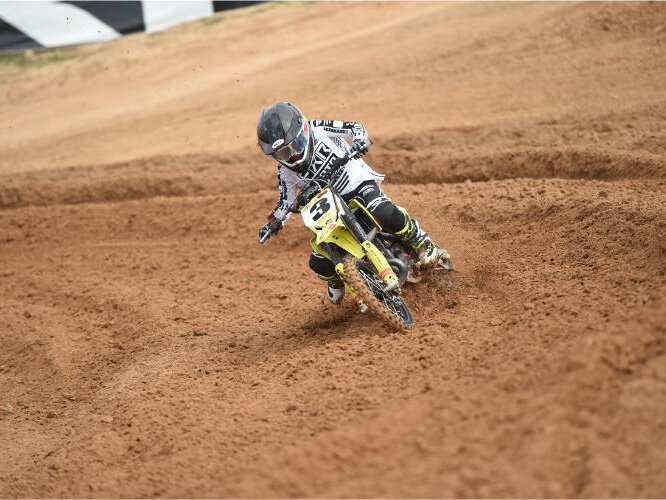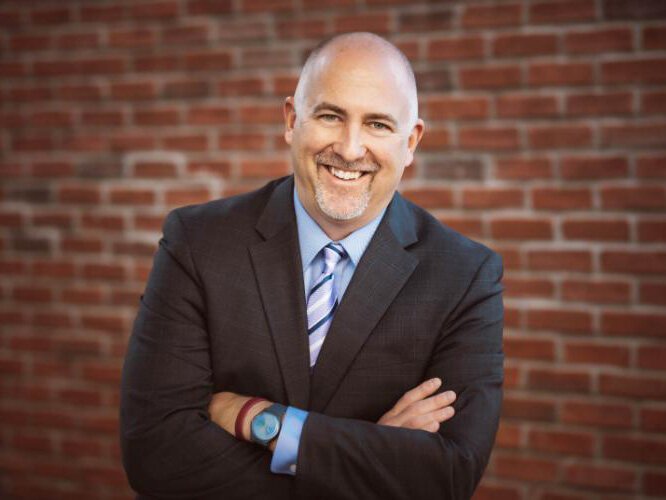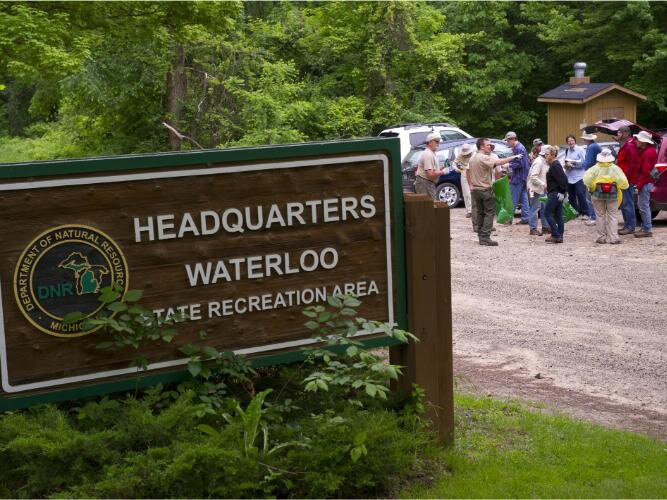Southern Michigan Outdoors Plan promotes Jackson’s outdoor benefits

If Jackson County’s movers and shakers have their way, people across the country will increasingly view the area as a hub for outdoor recreation, a facilitator of business innovation in recreation technology, and an overall more attractive place to live.
The Region 2 Planning Commission, a research and advisory body made up of representatives from communities in Jackson, Hillsdale and Lenawee counties, is in the early stages of a strategy called Southern Michigan Outdoors that aims to improve the region’s economic health.
Objectives include: growing the local workforce by retaining and attracting new talent, promoting new and existing outdoor recreation opportunities, planning new events to attract visitors, and potentially repositioning the region as an active resource for leisure technology companies.
Why the focus on outdoor recreational activities?
Quarantine during the pandemic and general interest among younger generations have driven participation, increasing U.S. outdoor participation by nearly 7 percent to 162 million people between 2020 and the end of 2021. And Michigan has proactively recognized the segment as an engine of economic growth and expanded its Office of Outdoor Recreation Industry in 2019 to support and promote its natural resources and its businesses involved in equipment design, testing and manufacturing, retail and wholesale distribution, and access to and enjoyment of the outdoors.
However, time appears to be of the essence when it comes to seizing these opportunities in the tri-county region.

 Jacob Hurt“We have a small window of opportunity where we can still be at the forefront of economic development in the outdoor recreation sector before everyone else gets into it,” stressed Jacob Hurt, the commission’s executive director. “By and large, outdoor recreation is a bigger economic driver than the pharmaceutical industry and many other traditional segments.”
Jacob Hurt“We have a small window of opportunity where we can still be at the forefront of economic development in the outdoor recreation sector before everyone else gets into it,” stressed Jacob Hurt, the commission’s executive director. “By and large, outdoor recreation is a bigger economic driver than the pharmaceutical industry and many other traditional segments.”
“The biggest challenge is getting people to understand what we have, what that could be and how this plan could benefit the region and its communities. When people think of outdoor recreation as economic development, they think, ‘We don’t need more trails.’ But it’s also about attracting jobs and service providers. There could be products that can improve the economic competitiveness of the region.”
Jackson needs people, outdoor recreation needs support
The Action Plan was prepared in 2022 in response to the overarching Comprehensive Economic Development Strategy (CEDS) for 2021, which was prepared by a group of Commission, regional government and local economic development officials.
One issue being addressed is the population of Jackson County stagnated between 2010 and 2022a fact that Hurt attributes in part to “a general rust belt problem in the Midwest” and the aging of the baby boomer generation.
The problem: That means a shortage of workers for new and potential employers in the area. One solution is to attract more residents by improving the local quality of life. That’s why commissioners are interested in repositioning the area as an epicenter for fun outdoor recreation opportunities such as off-road driving, gravel biking, fishing, boating, kayaking, hunting, hiking, camping, golfing, paddling and winter sports.
“We started to inventory the assets of the three counties and realized there really is something here,” notes Hurt. “When I think of Michigan, I think of ‘Pure Michigan,’ one of the best advertising campaigns of all time … and south of Jackson, there are areas like the Irish Hills that’s pure Michigan. The larger region has over 270 lakes, 87 of which are larger than 50 acres. But a lot of it is marketing – how to sell it to the outside world.”
According to Hurt, the goals described in Southern Michigan Outdoors include:
A project manager will be hired by the end of the year to oversee the initiative’s day-to-day tasks.
Investing in the growing local community of Grass Lake Charter Township (population approximately 6,000) and promoting its key outdoor recreation amenities, including the 6,000-acre Sharonville State Game Area, the 21,000-acre Waterloo State Recreational Area, Grass Lake itself, and the community’s popular equestrian, running, biking, triathlon, and stock outboard racing events.

 Michigan Department of Natural ResourcesThe growth or creation of other outdoor competitions and events that could bring more people closer to the region’s natural resources. In 2023 alone, the three-county region hosted more than 40 running, triathlon and cycling races, attracting more than 5,100 participants. For example, the Rode to Hell gravel bike race, which runs from Grass Lake to Hell, attracts up to 600 cyclists annually.
Michigan Department of Natural ResourcesThe growth or creation of other outdoor competitions and events that could bring more people closer to the region’s natural resources. In 2023 alone, the three-county region hosted more than 40 running, triathlon and cycling races, attracting more than 5,100 participants. For example, the Rode to Hell gravel bike race, which runs from Grass Lake to Hell, attracts up to 600 cyclists annually.
“Previously, West Michigan attendees had no idea we offered gravel riding and that local Airbnbs were cheap enough to spend a weekend here,” notes Hurt. “These event attendees have significant disposable income and are people you want to visit and spend money with. We’re hoping we can attract people here for a short time, and maybe eventually they’ll come back again and again, and hopefully we can turn some of them into local residents.”
Attracting/recruiting additional recreational technology companies in the region in partnership with the Michigan Outdoor Recreation Industry Office and Jackson-based business accelerator/co-working space Lean Rocket Lab. Recreational technology companies already in the region include Angling AI, a maker of molds for DIY fishing lures; Painted Arrow, a producer of magnetic phone mounts for bows; More Golf, a maker of high-tech modular golf clubs; UGQ Outdoors, which makes custom ultralight gear; and Cobra MOTO, a maker of custom off-road motorcycles.
Sean Hilbert, president of 20-year-old, 60-employee Cobra MOTO, calls the region an ideal location for a leisure technology center because it is “outside the automotive bubble” but close to Michigan State University and the University of Michigan. He also cites the valuable skills and work ethic of the region’s workforce, his positive experience working with state and local agencies, and the benefits of having a headquarters in a rural area that allows for expansion.

 “The greater Jackson area has all the makings of being an incredible tech hub,” he says. “There are other emerging companies that could benefit from an area focused on (outdoor-oriented companies), and there’s a tremendous amount of local talent funneled down through automotive suppliers.”
“The greater Jackson area has all the makings of being an incredible tech hub,” he says. “There are other emerging companies that could benefit from an area focused on (outdoor-oriented companies), and there’s a tremendous amount of local talent funneled down through automotive suppliers.”
Potentially marketing the area as a lower-cost test site for early-stage off-road vehicles, parts and products. “Powersports is a big deal in this state, and we already have about 70 prototype manufacturers in Jackson County alone,” notes Hurt. “We could engage them as companies that make one-off prototypes of potential equipment or components. The next step would be to hire a consultant to develop a recreational technology roadmap for prototype manufacturers to help them identify opportunities they may not see.”
looking ahead
Currently, implementation of the plan is being funded through the commission’s general planning and economic development budget; less than $25,000 has been spent so far. Hurt says the process of applying for grants to fund the plan’s larger projects is still underway.
“The budget has been very tight so far,” he notes. “If we are able to develop physical assets, the amount could be in the millions, but we have not yet made a ‘wish list’ of such things. We hope to raise enough funds to make a real difference.”
“When people think of Michigan right now, they don’t think of our region when it comes to outdoor recreation. But I’m confident we can do it. We need to figure out what assets make us unique and really leverage what we have as a region. Then we need to look at the big picture and see what we need to do to put our region on a path to economic competitiveness and prosperity.”
Freelance writer Michelle Miron is originally from Kalamazoo and now lives in the frozen tundra of Minnesota, where she makes a side income selling vintage clothing.



